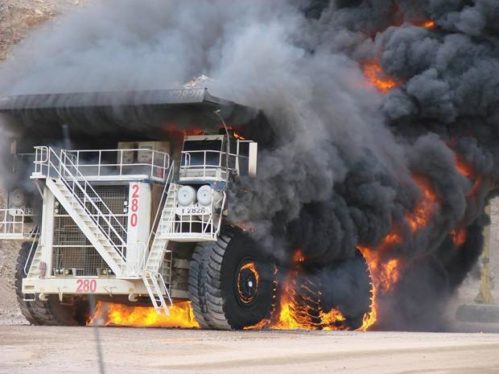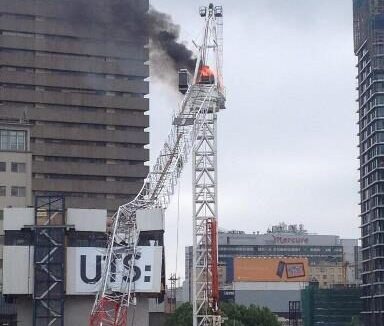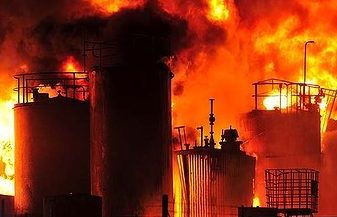Valuations for insurance purposes
Australian Valuations provides professional advice and sales strategies for the disposal of your surplus assets.
It pays to protect your business and that means understanding the value of your business and its assets and insuring them properly. Accurate valuations of assets ensure the correct sums insured thereby avoiding the risk of underinsurance and co-insurance clause triggering should a loss event occur, or conversely, unnecessary over-insurance costs.
At Australian Valuations, we have the technical knowledge, skills and experience to provide expert advice in all areas of property, plant & equipment and contents valuations for all your insurance requirements including:
- Replacement with New
- Reinstatement
- Indemnity Value
- Industrial Special Risk (ISR) policies
- Agreed Value policies
- Loss Adjustment
We are able to provide a three-year insurance valuation program service. This service provides you with the valuation report, in which the valuer completes an on-site valuation in year one, followed by an annual on-desk review & update in each of the following two years. These valuation updates are issued prior to the anniversary date of the initial valuation in readiness for your renewal discussions with your broker. This greatly assists with simplifying the renewal process with your broker and ensures the sums insured for those assets valued are kept up to date. Best of all, in most cases the cost of the insurance valuation program can be added to the cost of your premium.
Unfortunately, most businesses have only 50-75 percent of the correct replacement value insured. The risks of under-insurance can affect more than just the business. Ultimately it is the Directors of a company who bear responsibility for declaring insured values, and they can be penalised for misrepresentation in the event of a claim.
The risk of getting it wrong
Businesses usually run into problems when they are needing a quick claim process, and it transpires that there is no solid basis for the declared insurance values. In this case, ensuing investigations by the insurer can lead to a protracted claims process and delayed settlements which can take months or even years.
If the property and business have been underinsured, even if unintentionally, the insurer may decide that the underinsurance is deliberate and refuse to pay the claim at all. This is an extreme case, but it can happen. On the other hand, if the insurer does decide to pay, despite the underinsurance, the payout will not cover the full loss and the business will need to make up the shortfall.
Neither situation is ideal, particularly when a business is trying to get up and running quickly after a loss.
Get a quote
Looking for the right valuation? We can help.
Importance of valuing your business assets
When the unexpected happens, businesses rely on insurance cover to make good their losses and allow them to start working again as soon as possible. The majority of businesses have property insurance to cover their buildings, plant & equipment and contents typically held through an Industrial Special Risks (ISR) policy. In the event of a claim having a professional insurance valuation can greatly simplify and streamline the claim process.
What many businesses don’t understand is that unless their business assets have been valued correctly, they are more than likely to be underinsured, without even knowing it. Even more concerning is that many businesses will have based their insurance cover on the advice of an insurance broker, or relied on the advice of a trusted employee who may have been responsible for their insurance needs for years.In this case, business owners may well think their business is covered, when the reality is that with the best intentions in the world, their broker or employee may have left the business exposed to significant risk.
The Number 1 Valuation Mistake:
Self-Assessment Often Leads to Underinsurance
Insurance is designed to restore a business to the position it was in before the loss and to reinstate the business on a like-for-like basis without financial penalty.
Without a formal valuation, the likelihood is that insured values may be based on incorrect advice and false assumptions which can lead to two major problems:
- The sums insured are incorrect
- Initially, incorrect sums insured are then reviewed annually by staff who often fail to account for the real rise in the cost of reinstatement.
These costs can include professional fees, changes to building codes, debris removal, site improvements and currency fluctuations, as well as lead times for DA approval, planning, rebuild period and policy life.
Other common valuation mistakes
- Not updating sums insured
- Simply adding 5-10 percent to last year’s figures
- Basing increases on real estate conditions
- Asking a bank, builder, architect or real estate agent for the valuation
- Relying on advice from an in-house accountant or engineer
- Referring to building guides
- Adopting a book value
- Using financial valuation reports and deducting the land value
- Adopting the second-hand purchase price or acquisition price of an asset
- Overlooking or not taking into account the real costs of installation and commissioning
The reality of underinsurance
Many people think that underinsurance would only impact them in the event of a total loss, where they would not receive the full value of their loss and would need to fund the shortfall. In fact this is not true. In the event of a loss even if you suffer a partial loss you can be penalised for under-insurance.
Example 1: A Partial Loss Claim
A building is insured for $4 million and a fire causes $2 million of damage. You might think that you would be fine – the building is insured for $4 million and you only require $2 million to make good, right?
Wrong. The loss adjuster will want to know how you came up with insured values and as well as a thorough evaluation of what was in the area of loss. Without a proper valuation, you will be unable to answer these questions to his satisfaction, and he will make his own assessment. If his assessment shows that you were under-insured by 50%, you may only receive 50% of the cost of the loss. That means $1 million to replace losses of $2 million. You will be left to fund the remaining $1 million, even though you thought you were adequately insured. This is often referred to in insurance policy wording as co-insurance clause or co-insurance triggering.
Example 2: A Total Loss Claim
Imagine if you have a factory building as well as the plant, equipment and contents insured for $4 million dollars, it burns down resulting in a total loss. The loss adjuster’s assessment proves the total replacement cost will be $8 million revealing the business assets are underinsured by 50%, the insurance payout is not $4 million but is reduced to $2 million dollars as a result of co-insurance triggering and the business is left with a $6 million shortfall. The business may struggle to recover or worse, not recover at all, particularly if the claim drags on and business interruption insurance is inadequate or compromised. Furthermore, as previously mentioned, the Directors of the company can be held responsible.
The benefits of getting it right
It is not difficult to ensure that you are properly insured. The key is to make sure that your business has been properly assessed by qualified professional property, plant & equipment valuers with significant experience in providing valuations for insurance purposes. A proper valuation process removes the risk to your business and to your Directors of underinsurance and ensures that there will be no gap in the event of a claim.
It is also important to have an up-to-date asset register which will allow you to respond to a loss with the minimum impact on your business. In fact, one of the advantages of the valuation process is that it forces many businesses to implement internal processes, such as asset registers, that have long been on the to-do list or are outdated.
The benefits of having a professional valuation carried out are significant, both to you and your business, and include:
- Not paying the consequences of underinsurance in the event of a claim
- Not paying excessive premiums due to over insurance
- More negotiating power when it comes to renewals
- Fast-tracked claims process without disputes around the insured values
- Minimised interruption to business operations
- Established lead times for business interruption calculations
- Implementation of internal processes, such as asset registers
- Compliance for risk mitigation
What should you do to ensure your business is correctly insured?
It is absolutely crucial to have your business and its assets valued correctly, and that means using a professionally trained and qualified valuer with extensive experience and a significant track record in providing insurance valuations, something that the majority of valuers aren’t experienced with nor qualified to do.
We are happy to provide an obligation-free consultation and quote on your next asset valuation job. Allow up to 48 hours Monday to Friday for a response or if you would like to speak to one of our Property, Plant, Machinery & Equipment Valuers directly please contact us.
About us
Australian Valuations
Australian Valuations provides you with professional asset valuation from a team of experienced and accredited valuers who consistently deliver high-quality service. We have extensive experience in providing valuation solutions and independent advice for all manner of plant, machinery & equipment, industrial property, and infrastructure throughout Australia and internationally.
Our valuers and consultants maintain an active membership with national and international professional associations including the American Society of Appraisers (ASA), Royal Institution of Chartered Surveyors (RICS), Australian Valuers Institute (AVI), Australian Property Institute (API), National Council of Jewellery Valuers (NCJV), Auctioneers and Valuers Association of Australia (AVAA), and Institute of Automotive Mechanical Engineers (IAME).
Australian Valuations
Our Services
Some of the other professional asset valuation services we provide include:




